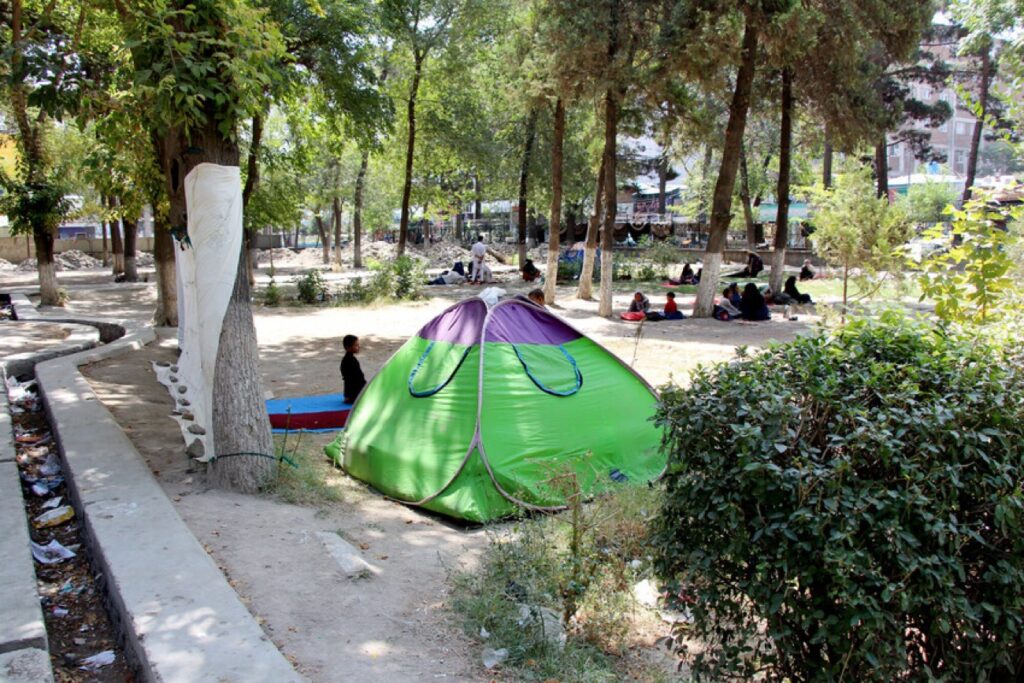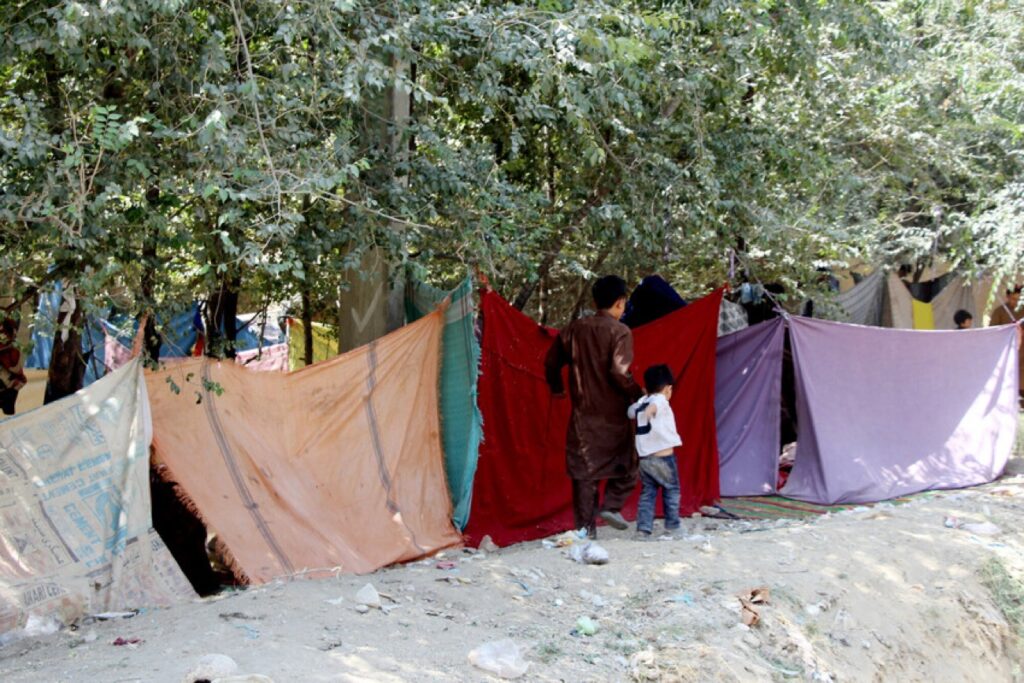Thousands of people becoming increasingly desperate as food runs out, prices skyrocket and unemployment rises
With at least 12 million people facing extreme hunger and more than three million people just one step away from famine, humanitarian charities warn it’s imperative that food and other essential aid reaches Afghan communities immediately, or the death toll could be catastrophic.
Even before the current crisis, large parts of Afghanistan were suffering from severe hunger due to drought, ongoing insecurity and the Covid-19 pandemic pushing many more people into poverty.
Half of all children under five years old are expected to suffer from acute malnutrition this year, yet the UN humanitarian funding appeal for 2021 is only 37 per cent funded.
Now the situation is rapidly getting worse, and food prices are expected to rise even further because of disruption to markets and border closures.
The current uncertainty means that humanitarian access is extremely limited and aid agencies are unable to reach many of the people most in need.
Food is particularly scarce in rural areas, with reports of increasing malnutrition and deaths among the most vulnerable. Women and children are especially at risk, with women typically prioritising their families’ needs above their own.
Families are exhausting the last of any meagre savings to buy a meal, and people are begging on the streets for food. Increasing numbers of families are being pushed deep into debt just to buy food.

Mohammed Hamid Sattai, Islamic Relief’s Humanitarian Programme Coordinator in Afghanistan, said: “The food situation is dire and getting worse by the day.
“The shops have finally reopened but prices have skyrocketed 10 to 20 per cent in little more than a week.
“People could barely put food on the table before but now many families are going down to one meal a day, with many women and children not even getting this.
“Women often eat last and least anyway in poor families, but when food is scarce women will take less and less food and in some cases will have no food at all. When there is no meal for the mother, then there is even less for the children and this causes long-term health complications.
“The ongoing uncertainty means that most crucial aid efforts remain frozen even as the needs are growing. If urgent action isn’t taken soon to get food to those in need, we will see a flood of anaemic mothers and severely malnourished children.
“We are already seeing people so desperate that they are asking shops to give them leftover leaves from vegetables that they don’t normally sell and picking flowers to make thin soups.”
Nearly 600,000 people have fled their homes this year, including many who have flooded into Kabul in the past few weeks. Many of the recent arrivals there are without aid and sheltering in extremely basic conditions, with growing threats of diarrhoea and other water-borne diseases spreading.

Waseem Ahmad, CEO of Islamic Relief Worldwide, said: “A humanitarian catastrophe is rapidly unfolding in Afghanistan after years of conflict and climate change. It is imperative that food and other vital aid gets to people who desperately need it.
“We’re calling on all sides to ensure that all humanitarian workers can operate freely and safely and that humanitarian access is not restricted. International donors must urgently step up with new funding and greater support for the aid effort. They must ensure that the people of Afghanistan are not forgotten at this critical moment.
“Islamic Relief has worked in Afghanistan for more than 20 years and we are fully committed to staying and providing critical care to tens of thousands of people in need.”
Islamic Relief Worldwide has launched a £5 million emergency appeal to provide aid as soon as safely possible to vulnerable people in Kabul, Balkh, Herat and Nangarhar. The initial aid will include food packages, hygiene kits, emergency shelters and other essential supplies.















